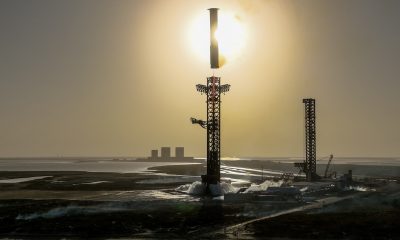News
SpaceX ups pre-launch insurance coverage by 5X after FAA mandate
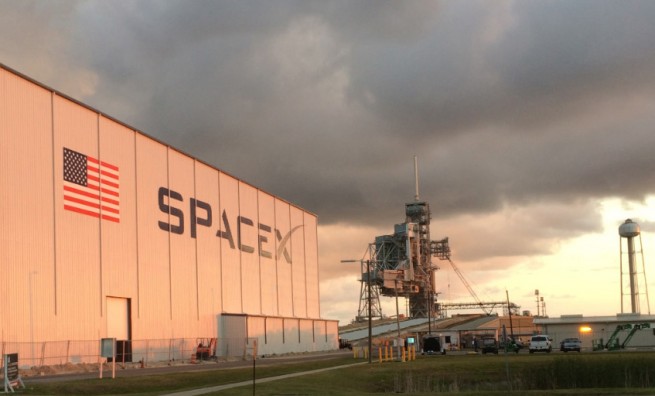
The SpaceX launch scheduled for the pre-dawn hours of today was postponed due to high winds in the Cape Canaveral area, and has been tentatively rescheduled for Thursday, March 16 at 1:35 am. Viewers can watch the launch live on the SpaceX webcast.
Standing down due to high winds; working toward next available launch opportunity.
— SpaceX (@SpaceX) March 14, 2017
This upcoming mission is intended to place the Echo Star XXIII communications satellite into geosynchronous earth orbit.
The FAA granted a license for the launch, which will take place from historic launch pad 39A, on March 1. That license brought with it a requirement that SpaceX carry $63 million in pre-launch liability insurance — five times the amount required for previous flights. The insurance is intended to cover any damage to government property in the event of an accident prior to liftoff.
A Falcon 9 rocket exploded on a nearby Air Force launch pad during pre-flight testing last September, doing extensive damage to the launch facility. Previously, the government required only $13 million in pre-launch insurance coverage. The resupply mission to the International Space Station in February was not required to carry extra insurance.
SpaceX carries separate insurance to protect government property during the actual launch itself, but in the event of an explosion or other mishap, the rocket could damage the launch area or other parts of the space facility. Neither SpaceX nor the FAA have revealed details about why the increased level of insurance is being required for this flight.
Update March 14 at 3:00 pm EST
Later this month, SpaceX will attempt the first re-use of a Falcon 9 rocket when it attempts to launch an 11,700 pound SES 10 telecommunications satellite built by Airbus. The first stage of that rocket flew previously on April 8, 2016 when it launched a Dragon capsule on a mission to resupply the International Space Station. It was the first rocket to be successfully recovered at sea.
It has been fully refurbished and has been declared ready to be used again. The re-use of the rocket is with the full knowledge and cooperation of SES, the Luxembourg based owner of the satellite.
News
Tesla could face emissions credit tax in Washington
Tesla could be subject to a tax on its emissions credit sales in Washington, just ahead of the beginning of the state’s phase-out of gas vehicles.

Tesla could face a new tax on the emissions credits it sells to other automakers, as introduced this month by legislators in the state of Washington.
As detailed in an op-ed from the Wall Street Journal on Monday, Democrats in Olympia have filed two companion bills proposing a 10 percent tax on the electric vehicle (EV) emissions credits Tesla sells, valued at roughly $1.79 billion globally last year. The emission credits market was created out of regulations requiring automakers to start phasing out gas vehicles, allowing Tesla, which only makes EVs, to sell the credits to gas automakers which aren’t able to meet the upcoming phase-out goals.
“The creation of these tradeable and bankable credits creates the opportunity for a financial windfall accruing to firms that are not burdened by the legacy production of internal combustion engine vehicle,” legislators wrote in the proposal. “It is the intent of the legislature to address this unintended outcome by taxing the windfall profits.”
Olympia Republicans went on to file a counter to the bill, which would effectively prohibit such a tax as well as “any other tax that applies to only one individual, business, or entity.”
READ MORE ON TESLA EMISSIONS CREDITS: Tesla to help automakers comply with the EU’s 2025 CO2 emission rules
Washington joined California in 2020 in setting regulations to phase out gas vehicles by 2035, requiring a maximum of 20 percent plugin hybrid vehicles sold in the year along with making 80 percent of the year’s sales fully electric. The initial phase-out regulations kick off in 2026, requiring automakers to make 35 percent of their new vehicles fully electric or plugin hybrids, before that level increases to 51 percent in 2028, and 68 percent in 2030.
Tesla’s vehicle sales in Washington made up just 10 percent of those sold in the state last year, while the company has about 54 percent of all emissions credits in the state, according to the Washington Policy Center.
The Wall Street Journal editorial calls the new proposals “abusive lawmaking,” saying that targeting a single company would be strongly opposed by progressives if it were suggested by the Trump administration. Additionally, the op-ed highlights that Tesla and CEO Elon Musk set the price for the emissions credits, meaning that they could simply charge automakers more for them to make up for money lost on the tax.
U.S. Supreme Court to hear challenge on California emission rule waiver
News
Tesla’s Hollywood Diner is finally getting close to opening
Tesla’s construction of the Southern California diner, drive-in, and Supercharger hasn’t exactly been quick, but it appears to be getting close to opening.

Tesla looks to be getting closer to opening its highly anticipated diner, drive-in movie theater, and Supercharger location in Southern California, after the company began construction on the project in the latter part of 2023.
On Sunday, X user BLKMDL3 stopped by the Hollywood Tesla Diner location and shared photos of the site, noting that Superchargers are now lit up, parking lots are fully paved, and construction generally appears to be nearing completion. The news comes after Tesla has been building out the site for around 18 months, which many have pointed out is longer than some of the company’s latest production facilities have taken.
Tesla has yet to disclose when it plans to open the Supercharger location, though it appears to be getting closer than ever, at least as far as construction is concerned. The company also included some code related to integration with the diner in its latest version of the Tesla mobile app in January, along with posting its first job listings for the site in August.
You can see the latest progress on the Tesla Diner below, courtesy of X user BLKMDL3.

Credit: BLKMDL3 | X

Credit: BLKMDL3 | X

Credit: BLKMDL3 | X
Looks like the Tesla diner is about to open. This thing took forever to build, but it seems like it's finally happening! ⚡️🔋🚗
Who's gonna drop by here for a quick (or not so quick) charge and bite?🍽️ https://t.co/r1e6mTrlEF
— TESLARATI (@Teslarati) April 21, 2025
READ MORE ON TESLA SUPERCHARGERS: Tesla is building a new UFO-inspired Supercharger in the heart of Alien country
The user also notes that the adjacent parking lot is being built out to include additional Supercharger stalls, with the actual lots for the diner including around 28 to 32 stalls total, consistent with permits for the project. Next door, the user says the company is building roughly an additional 50 or so stalls, though these aren’t likely to be open when the diner initially opens.
The site is located at 7001 West Santa Monica Boulevard, and according to Elon Musk’s original concepts for the Supercharger discussed on what was then Twitter in 2018, the unique charger is set to include a 1950s-style diner with rock and roll and waiters on roller skates, in addition to drive-in theater screens playing scenes from the best movies in history.
Tesla gained a series of construction permits for the project throughout 2023, before officially beginning construction in September 2023. You can see photos from the site below, taken just weeks after groundbreaking, as well as in January and April of last year.
Tesla’s LA Diner and Supercharger in November 2023

Credit: Ed Howard | X
Tesla’s LA Diner and Supercharger in January 2024

Credit: Fox 11 Los Angeles

Credit: ShorealoneFilms | X
Tesla’s LA Diner and Supercharger in April 2024
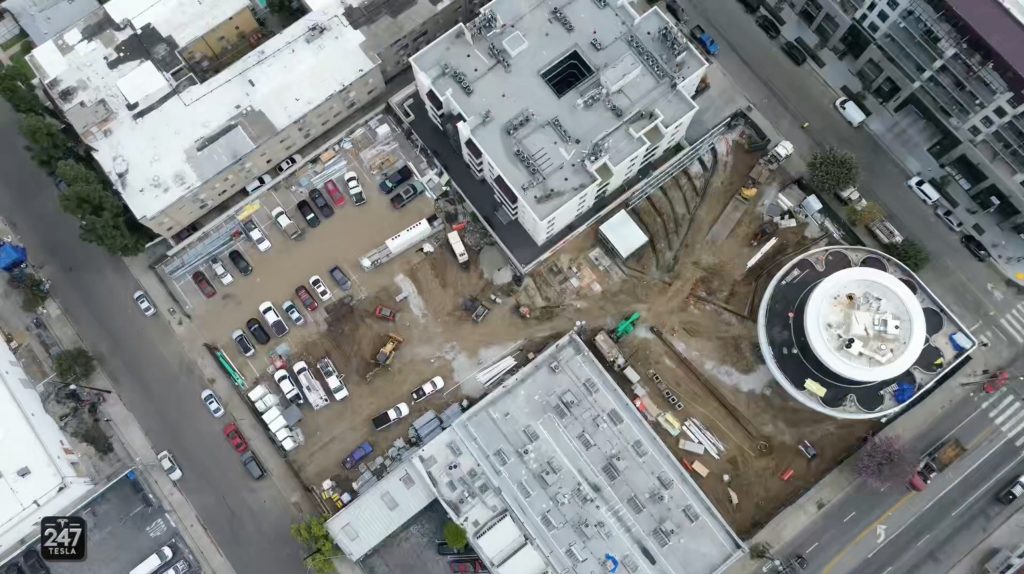
Credit: 247Tesla | YouTube

Credit: 247Tesla | YouTube
Tesla exec highlights advantages of prefabricated Superchargers
News
Tesla building apparent Cybercab castings ahead of launch
Tesla has been producing what look like some Cybercab castings at Giga Texas, as spotted this week ahead of the vehicle’s upcoming launch.

Tesla’s Gigafactory in Texas is building what appear to be castings for the upcoming Cybercab, ahead of the vehicle’s launch and the highly anticipated debut of Unsupervised Full Self-Driving (FSD).
On Monday, Tesla Giga Texas site observer Joe Tegtmeyer shared photos on X of some unique castings out beside the factory. Notably, Tegtmeyer points out that the castings are quite different from those of the Model Y and Cybertruck, which are currently the only two vehicles being produced at the Austin, Texas plant—at least publicly.
Some viewers noted that the castings appear to have a similar shape to the Cybercab, along with being one single casting, compared to the two-piece Giga casts the factory produces for the Model Y and Cybertruck. The shape appears to be consistent with Tesla’s unboxed production process, which is expected to build single-piece castings and will be used for the upcoming Cybercab.
You can see Tegtmeyer’s photos of the castings below, in comparison with the Cybercab body and castings for the Model Y and Cybertruck.
Giga Texas castings April 21, 2025, compared to Cybercab

Credit: Joe Tegtmeyer | X
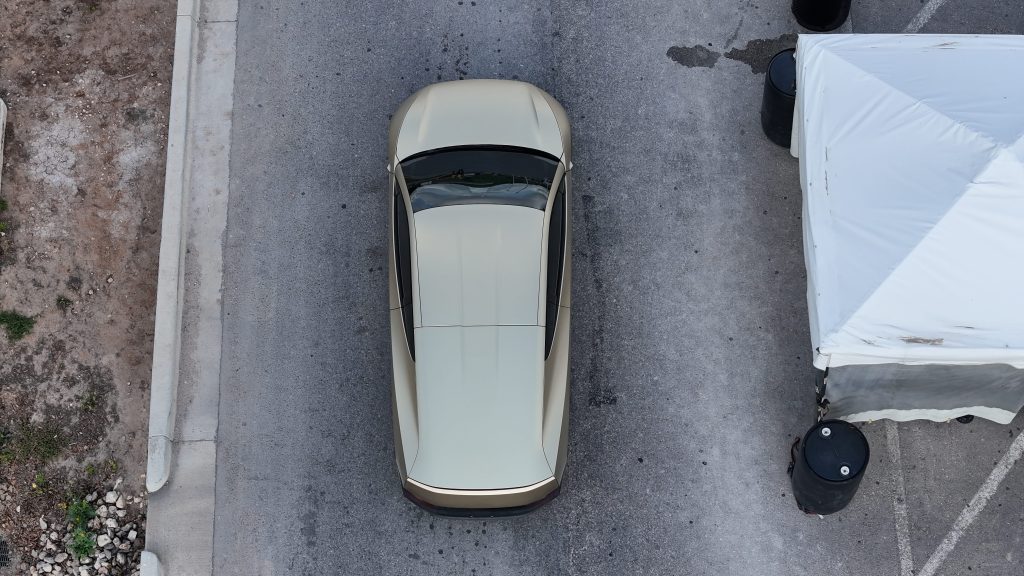
Credit: Joe Tegtmeyer | X
Giga Texas Model Y rear casting
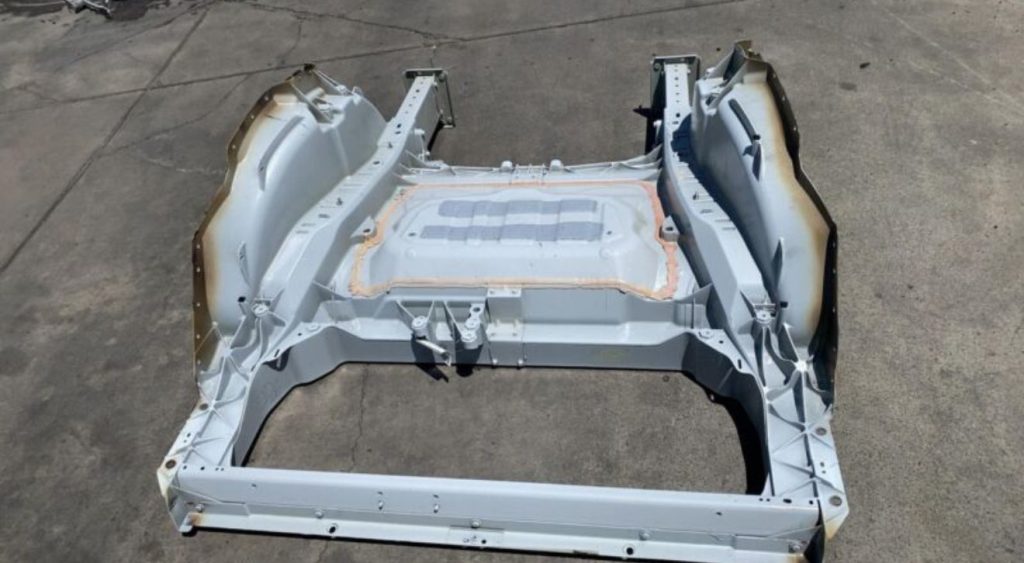
Credit: Joe Tegtmeyer | X
Giga Texas Cybertruck castings

Credit: Joe Tegtmeyer | X
🎥: Our FULL first ride in the @Tesla Cybercab pic.twitter.com/6gR7OgKRCz
— TESLARATI (@Teslarati) October 11, 2024
READ MORE ON TESLA’S GIGA TEXAS: Tesla Cybercab no longer using chase vehicles in Giga Texas
In March, Tesla Vice President of Vehicle Engineering Lars Moravy confirmed in an interview with manufacturing expert Sandy Munro that Cybercab production would be starting prototype builds this summer, while the automaker is aiming to ramp for volume production in 2026.
While it isn’t summer yet, executives also confirmed in January that Cybercab production lines were already being prepared at Giga Texas, so it’s not unlikely that these castings are some of the upcoming vehicle’s first prototype builds.
The unboxed production process is also expected to revolutionize the automotive manufacturing industry, with CEO Elon Musk emphasizing how different the production line looks compared to its past vehicles during the Q1 2025 All-Hands meeting. Instead, Musk says the production line appears more like a high-speed consumer electronics line, and it’s expected to push Cybercab builds out in less than five seconds.
In a post on X earlier this month, Musk also reiterated that the Cybercab production line and the factory in general are essentially the products on their own, rather than just the cars themselves.
“The Tesla factory, especially our next gen Cybercab line, is the product,” Musk said. “That, autonomy and Optimus, are what matter.”
Tesla is also aiming to launch its first commercial robotaxi services around Austin, Texas this summer, along with launching its first iterations of Full Self-Driving (FSD) Unsupervised. The company is also holding its Q1 earnings call on Tuesday, during which executives are expected to address questions about the Cybercab and the upcoming commercial robotaxi service.
Tesla’s Giga Texas vehicles now drive themselves to outbound lot
-

 News2 weeks ago
News2 weeks agoI took a Tesla new Model Y Demo Drive – Here’s what I learned
-

 News2 weeks ago
News2 weeks agoTesla’s Giga Texas vehicles now drive themselves to outbound lot
-

 News2 weeks ago
News2 weeks agoTesla’s ecological paradise near Giga Texas takes shape
-

 News2 weeks ago
News2 weeks agoElon Musk and top Trump trade advisor Peter Navarro lock horns over tariffs
-

 News2 weeks ago
News2 weeks agoTesla adding new safety features for improved emergency detection
-

 News2 weeks ago
News2 weeks agoAnti-Musk protester temporarily arrested in Berlin for poster with Nazi salute
-

 News2 weeks ago
News2 weeks agoFormer Tesla executive aims to raise $50 million for energy startup
-

 News2 weeks ago
News2 weeks agoNIO Hong Kong shares rise as CATL eyes stake





